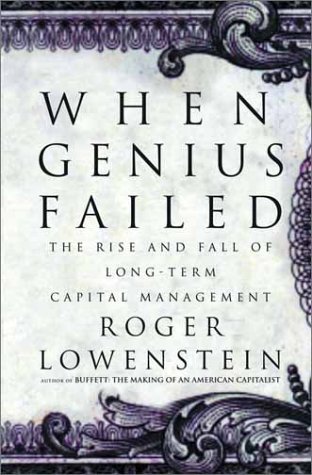So Long-Term’s problem had not been just illiquidity. Perhaps the fund’s entire strategy had been wrong, and the world’s (and Long-Term’s) perception of credit in 1998 had been a little too rosy. The evidence suggests that both factors were at work: Long-Term misjudged the markets, and the effect of that misjudgment was sorely compounded in September, when—to protect themselves against Long-Term’s imminent collapse—other traders went on strike and “liquidity” disappeared.
Welcome back. Just a moment while we sign you in to your Goodreads account.


